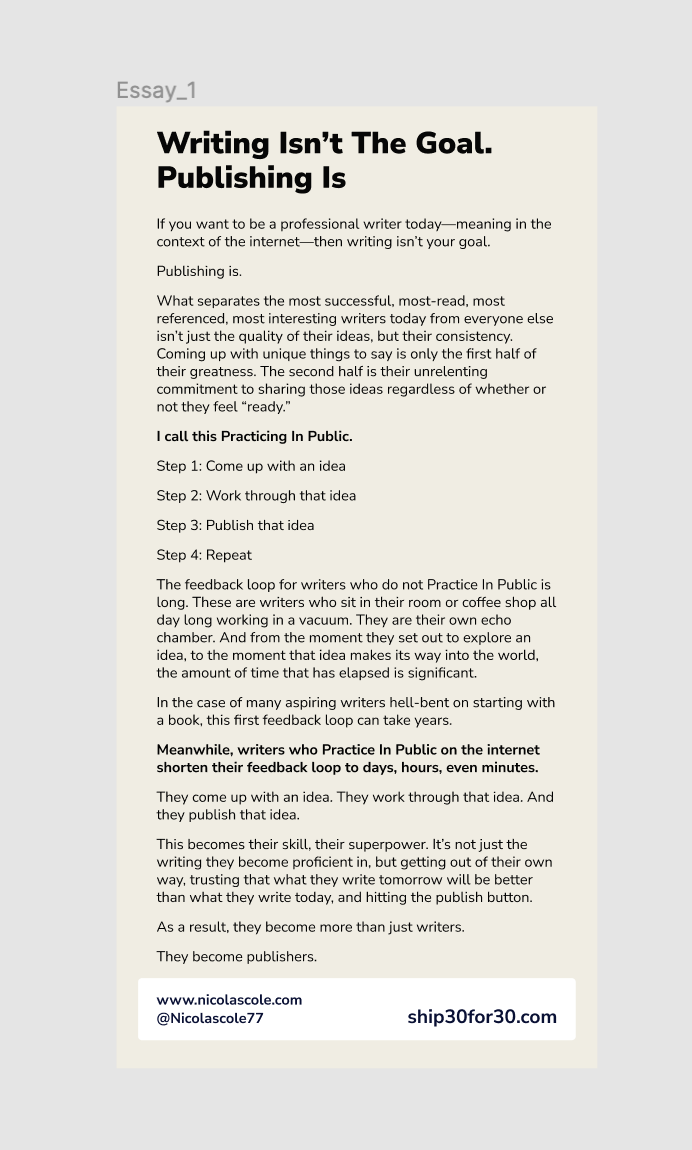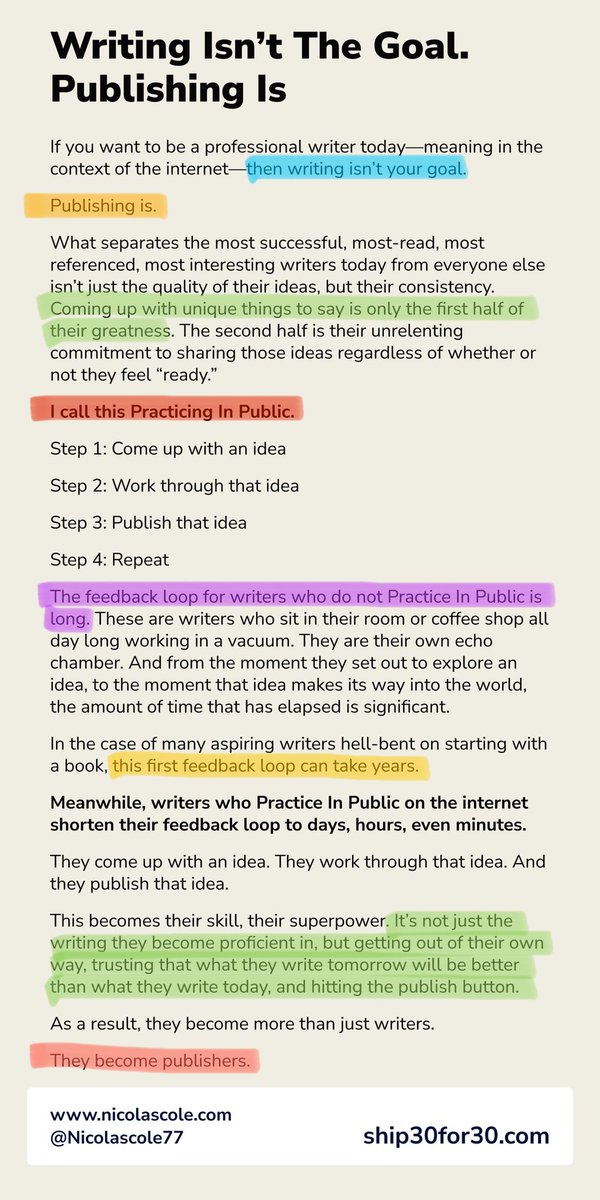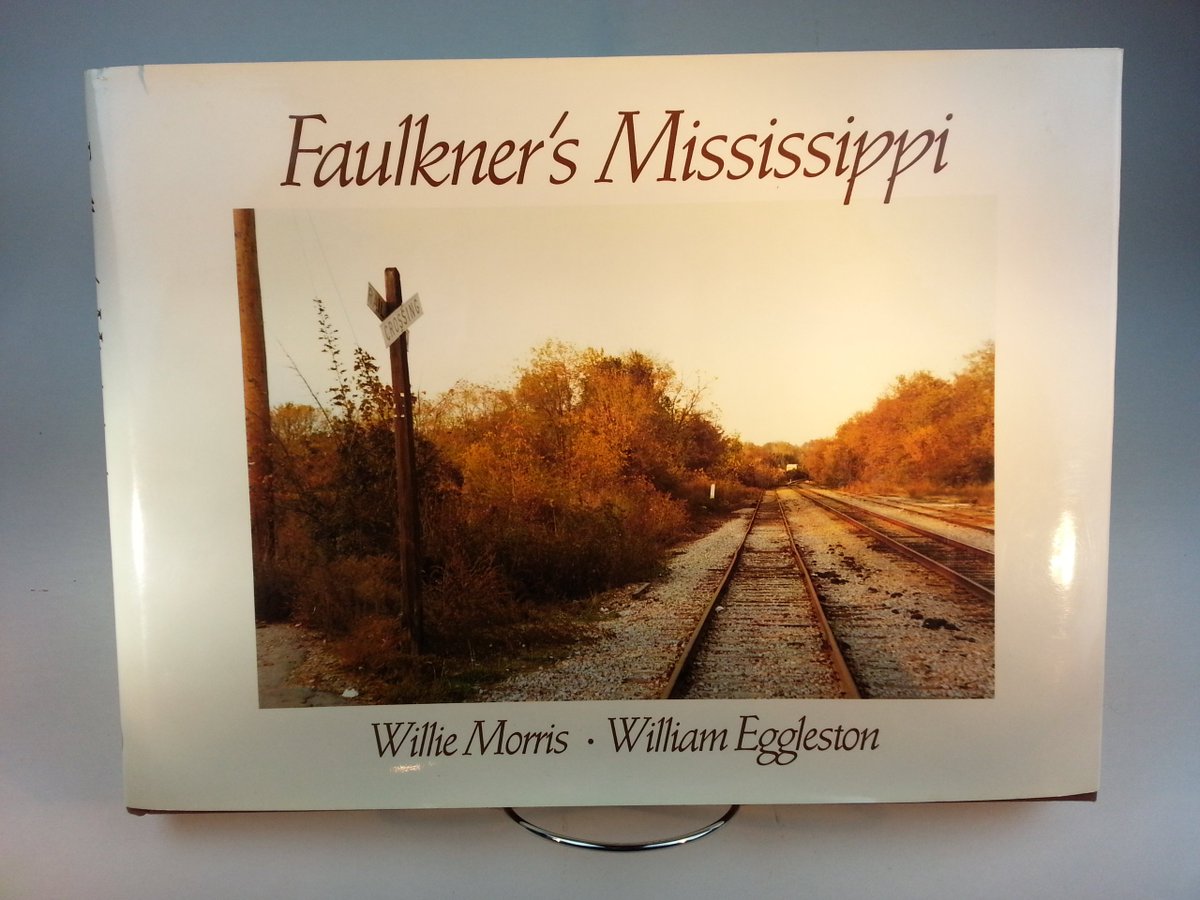
📊 The New Way Writers Are Gaining Traction In The Digital Age 📊
Since 2014, I have been writing every single day on the Internet.
That's not "the secret" to success.
The REAL secret is the strategy I used to pick high-performing topics.
Here's the framework ✍️📊📈👇
Since 2014, I have been writing every single day on the Internet.
That's not "the secret" to success.
The REAL secret is the strategy I used to pick high-performing topics.
Here's the framework ✍️📊📈👇
Step 1: Write, publish, and gather data points.
Every time you publish something on the internet, you are generating a data point.
Write 1 thing per year, that's 1 data point.
Write 365 things per year, that's 365 data points.
More publishing = more data.
Every time you publish something on the internet, you are generating a data point.
Write 1 thing per year, that's 1 data point.
Write 365 things per year, that's 365 data points.
More publishing = more data.
Step 2: Every 10-20 data points, look for trends.
Writing 1 thing on the internet and deciding whether or not you are a "successful writer" is pointless. You're examining data in a vacuum.
Instead, look for trends among data points.
Here's how 👇
Writing 1 thing on the internet and deciding whether or not you are a "successful writer" is pointless. You're examining data in a vacuum.
Instead, look for trends among data points.
Here's how 👇
Trends are:
- Which article/Tweet/Thread/etc. got the most views or engagement out of the past 10-20?
- Which content buckets got the most attention? (Personal dev or finance?)
- Which formats, styles, headlines, etc., work best?
The more you publish, the more trends you see.
- Which article/Tweet/Thread/etc. got the most views or engagement out of the past 10-20?
- Which content buckets got the most attention? (Personal dev or finance?)
- Which formats, styles, headlines, etc., work best?
The more you publish, the more trends you see.
Step 3: Double-down on highest-performing trends.
In 2015, I made a hard pivot in what I was writing about on Quora.
For almost a year, I had been writing about topics like Marketing or Bodybuilding. But data told me my Life Advice content was killing it.
So, I went all-in.
In 2015, I made a hard pivot in what I was writing about on Quora.
For almost a year, I had been writing about topics like Marketing or Bodybuilding. But data told me my Life Advice content was killing it.
So, I went all-in.
In 2015, I almost exclusively answered Life Advice questions on Quora.
As a result, I became the #1 most-read writer on the entire platform, generating tens of millions of views.
Still, I sprinkled in other topics along the way b/c I wanted to keep generating new data points 📊
As a result, I became the #1 most-read writer on the entire platform, generating tens of millions of views.
Still, I sprinkled in other topics along the way b/c I wanted to keep generating new data points 📊
Step 4: Turn high-performing content into longer-form content.
Once you get signal on what's working, you start to learn where your time, energy, and resources are better spent.
You have confirmation from the market that Topic A resonates with more people than Topic B 📈
Once you get signal on what's working, you start to learn where your time, energy, and resources are better spent.
You have confirmation from the market that Topic A resonates with more people than Topic B 📈
Once you notice something is working, don't be afraid to cut your losses.
Abandon your low-performing topics and *keep following the data* signaling your high-performing topics.
Do this over and over again, and your most loyal readers will reveal themselves.
Abandon your low-performing topics and *keep following the data* signaling your high-performing topics.
Do this over and over again, and your most loyal readers will reveal themselves.
Step 5: Learn which topics resonate with Masses vs Niches
As time goes on, you'll learn:
Some topics have massive reach, but aren't sticky (low engagement).
Other topics have smaller reach, but are super sticky (high loyalty/engagement).
You want to write both. Here's why 👇
As time goes on, you'll learn:
Some topics have massive reach, but aren't sticky (low engagement).
Other topics have smaller reach, but are super sticky (high loyalty/engagement).
You want to write both. Here's why 👇
When you learn which topics of yours get the most reach, you can leverage those topics to expose lots of different audiences to your writing.
Your niche topics then turn a portion of those mass-readers into loyal readers.
They stick to your web of content.
Your niche topics then turn a portion of those mass-readers into loyal readers.
They stick to your web of content.
Step 6: Turn longer-form content into assets.
Before you spend a few hours creating a course, or writing a 60,000 word book, you should have data confirming your decision.
- Is this a proven topic?
- Does your audience engage with this type of content?
- Etc.
Before you spend a few hours creating a course, or writing a 60,000 word book, you should have data confirming your decision.
- Is this a proven topic?
- Does your audience engage with this type of content?
- Etc.
Here's a good framework:
- Atomic Essay/Twitter Thread performs well, turn into ~800 word article
- Article performs well, turn into long-form piece
- Long-form works well, turn into (longer) free email course, download, etc.
- Download works well, turn into paid product $$$
- Atomic Essay/Twitter Thread performs well, turn into ~800 word article
- Article performs well, turn into long-form piece
- Long-form works well, turn into (longer) free email course, download, etc.
- Download works well, turn into paid product $$$
Step 7: Repeat this process until the end of time.
There is no "finish line" as an online writer.
In fact, the more you write & publish, the more data you will generate for yourself, the more you will WANT to write because you have more and more validated ideas.
There is no "finish line" as an online writer.
In fact, the more you write & publish, the more data you will generate for yourself, the more you will WANT to write because you have more and more validated ideas.
This is the new way writers are gaining traction on the internet.
If you want to start using data to become a prolific writer, we just opened enrollment for the first cohort of Write The Ship.
enroll.ship30for30.com/write-the-ship…
If you want to start using data to become a prolific writer, we just opened enrollment for the first cohort of Write The Ship.
enroll.ship30for30.com/write-the-ship…
• • •
Missing some Tweet in this thread? You can try to
force a refresh







